第47章 LIBRARY MEMBERSHIP AS A CIVIC FORCE(2)
The selection of adult books in all classes,especially in biography,travel,history and literature is too limited in the children's rooms of many libraries and should be enlarged to the point of making the shelves of classed books look more like those of a library and less like those of a school room.Titles in adult fiction should include as much of Jane Austen as girls will read and an introduction to Barrie in "Peter Pan"and the "Little Minister.""Jane Eyre"will supply the demand for melodrama in its best form,while "Villette,"and possibly "Shirley,"may carry some girls far enough with Charlotte Bronte to incline them to read her life by Mrs.Gaskell.William Black's "Princess of Thule"and "Judith Shakespeare"will find occasional readers.
"Lorna Doone"will be more popular,although there are girls who find it very tedious.There should be a full set of Dickens in an edition attractive to boys and girls.A complete set of the Waverly novels in a new large print edition,well paragraphed and well illustrated,with the introductions left out and with sufficient variation in the bindings to present an inviting appearance on the shelves would lead,I believe,to a very much more general reading of Scott.
Conan Doyle's "Adventures of Sherlock Holmes,""The Refugees,""The White company,""Micah Clarke"and "At the Sign of the four"will need no urging,nor will Dumas'"Count of Monte Cristo,""The Three guardsmen"and "The Black tulip.""Les Miserables"and "The Mill on the Floss"will fully satisfy the demand for "great troubles,"treated in a masterly fashion.We should include Thackeray's "Henry Esmond,""The Newcomes"and "The Virginians";Bulwer's "Last Days of Pompeii,""Harold,""Rienzi"and "The Last of the barons";Charles Kingsley's "Westward Ho,""Hereward the Wake"and "Hypatia";Charles Reade's "Cloister and the hearth,""Peg Woffington,""Foul play"and "Put yourself in his place";Besant's "All sorts and conditions of men"and "The Children of Gibeon";Wilkie Collins'"The Moonstone"and "The Woman in white"as many of Robert Louis Stevenson's stories as will be read "Cranford"and "The Vicar of Wakefield"with the Hugh Thomson illustrations;Miss Mulock's "John Halifax,""A Noble life,""ABrave lady"and "A Life for a life";Lever's "Charles O'Malley"and "Harry Lorrequer",Lew Wallace's "Ben Hur"and "The Fair god";Stockton's "Rudder Grange,""The Casting away of Mrs.Lecks and Mrs.Aleshine"and "The Adventures of Captain Horn";Mrs.
Stowe's "Uncle Tom's cabin"and "Oldtown folks";Howells'"Lady of the Aroostook,""A Chance acquaintance,""The Quality of mercy"and "The Rise of Silas Lapham";Gilbert Parker's "Seats of the mighty"and "When Valmond came to Pontiac";Paul Leicester Ford's "The Honorable Peter Stirling";Richard Harding Davis'
"Van gibber,""Gallagher,""Soldiers of fortune"and "The Bar sinister";Rider Haggard's "King Solomon's mines"and "Allen Quartermain";Weir Mitchell's "Hugh Wynne",Marion Crawford's "Marietta","Marzio's crucifix",and "Arethusa";Kipling's "The Day's work","Kim"and "Many inventions"and,if they have been removed as juvenile titles,I think we should restore "Tom Sawyer"and "Huckleberry Finn"under the head of adult fiction.
Other titles will be freely and frequently used in a children's room,which is taking into active account the interests of its users and is seeking to establish a genuine taste for good reading which will not be abandoned later on as artificial or forced.In general,the principle of selection should be to provide the best standard novels in order that the boys and girls who go out from the children's room may know what good novels are and so much of modern fiction as shall serve to give the collection the appearance of being interesting and up to date without lowering the standard of that taste for good reading which is the chief purpose in shelving such a collection in a children's room.The presence of the books is good for the children's librarian as well as for the children and it goes without saying that she must be familiar with them if she is to use them intelligently.
The point to stop in the purchase of books designed for supplementary reading is with the smallest number that will meet the active demands which are not met by REAL books.We may well stop with the third book in most cases of purchase of books in sets.Does anybody know whether informational readers on the shelves of a children's room leads to genuine interest in the subject so presented?To quote one boy's opinion of nature readers,"The nature you get in books is the most disinteresting subject there is."The cheapness of these publications has led to a larger duplication of them in libraries than seems desirable for the best interests of the work.We need in place of them such books,with certain modifications in treatment,as were indicated by Dr.Stanley Hall in his recent and very suggestive address on Reading as a factor in the education of children (Library Journal,April,1908).Most of all do we need a series of books which will put foreign children and their parents in touch and in sympathy with the countries from which they came by spirited illustrations in color of street scenes,festivals and scenes from home life accompanied by simple direct statements and with translations of such stories and poems as may aid in making and keeping the impressions of their country vivid and lasting.There has been a rising wave of production of primers and first reading books during the past five years.Some libraries have experienced a primer craze and it becomes exceedingly difficult to decide which ones to buy and bow freely to duplicate them.